
The head of the Taiwanese administration Lai Tsingde on Wednesday announced plans to allocate a special budget of $40 billion for the purchase of weapons, according to the Associated Press. It is noted that this amount, in particular, includes funds for the creation of an air defense “dome”.
“Threats from China to Taiwan and the Indo-Pacific region are increasing (…). Taiwan should demonstrate its determination and take greater responsibility in self-defense,” said Lai Qingde.
It is noted that the Taiwanese administration has requested this tranche separately from the annual defense budget, and this request must now be approved by Taiwan’s legislature.
The Taiwan issue arose in 1949 when the People’s Republic of China was proclaimed and part of China’s Kuomintang Party settled on the island of Taiwan, naming the island the Republic of China on Taiwan. Beijing insists on the “one China principle”, according to which it is impossible to recognize both the PRC and the Republic of China on Taiwan at the same time. At the same time, almost all major states have unofficial cultural and economic offices of Taipei.
Help from Experts Club: the ratio of PRC and Taiwan military capabilities (estimates for 2025)
Based on public estimates (GlobalFirepower, Taiwan’s Ministry of Defense, budget data): Number of active military personnel
China: about 2.0-2.1 million (active NVAC personnel).
Taiwan: nearly 230,000 personnel.
Ratio: about 8-9 to 1 in favor of China.
Reserve and mobilization resource
China: about 510 thousand reservists + large para-military formations.
Taiwan: about 2.3 million reservists with a much smaller population, reliance on a massive reserve.
Air Force (general aviation)
China: about 3,300 aircraft, including about 1,200 fighters.
Taiwan: about 760 airplanes, approximately 280-300 fighters.
Ratio of fighters: about 4-5 to 1 in favor of China.
Navy (warships)
China: about 750 ships and boats, including 3 aircraft carriers, dozens of destroyers and frigates, more than 60 submarines.
Taiwan: about 100 ships and boats, no aircraft carriers, with a limited number of destroyers, frigates and submarines.
Ratio in number of fleet units: about 7-8 to 1 in favor of China, with an even larger gap in total tonnage.
Defense budgets (2025)
China: about $245-270 billion per year according to official figures.
Taiwan: about $20-21 billion (about 2.45% of GDP).
Ratio: China spends more than 10 times more on defense than Taiwan.
These figures are estimates and based on public sources, but generally reflect China’s significant quantitative superiority while Taiwan’s focus on technological saturation, defense doctrines, and alliance with the U.S. and other partners.
Source: https://expertsclub.eu/kytaj-zadiyuye-czyvilni-sudna-v-navchannyah-po-tajvanyu-zmi/
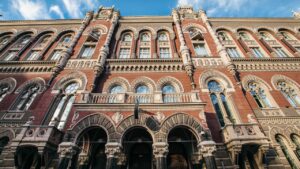
The National Bank of Ukraine has withdrawn the license for insurance activities and excluded from the State Register of Financial Institutions ALC Insurance Company “Garant & Ya” (Lviv) on the basis of the submitted application.
As reported, the NBU on July 18, 2025 granted to ALC “IC ”Garant & Ya” permission to exit the market by fulfilling the insurance portfolio and coordinated to this insurer the plan of exit from the market by fulfilling the insurance portfolio.
According to the company’s statements for the nine months of 2025, its insurance portfolio was formed by 100% of CASCO. The volume of insurance premiums of the company in the specified period amounted to UAH 14,312 million, insurance payments – UAH 23,437 million.
“The insurer adhered to solvency requirements. As of October 1, 2025 he has no obligations under insurance and reinsurance contracts,” – is emphasized in the information.
Insurance company “Garant and I” works in the insurance market since 2010. Since July 2011, the head office of the company was located in Lviv.
Authorized capital is UAH 33 mln.
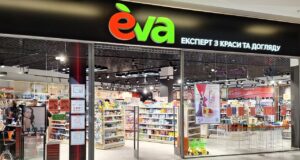
The European Bank for Reconstruction and Development (EBRD) is providing a risk-sharing guarantee without financing in the amount of UAH150 million (EUR3.1 million) to cover half of the loan issued by Ukrsibbank to retailer EVA for the development of its logistics hubs, the company’s press service reported.
“This agreement is an important milestone for EVA and our first experience of cooperation with the European Bank for Reconstruction and Development. We underwent a thorough analysis by the EBRD, which confirmed EVA’s financial stability, the compliance of our activities with the criteria of Ukrsibbank and the EBRD for borrowers, and the recognition of our company as a reliable partner capable of developing its business even in wartime,” said Lilia Volenko, CFO of Rush LLC (EVA and eva.ua network), in a press release.
It is noted that this agreement was the first time the bank used the EBRD’s risk-sharing program (individual investment loan guarantee) to provide an investment loan to a corporate client. Previously, risk sharing rules allowed the bank to share risks only for working capital financing transactions.
According to Volenko, this agreement is a signal to the market about the possibility of attracting long-term financing with the support of international institutions in wartime.
Rush LLC, which manages the EVA chain, was founded in 2002. The chain has over 1,100 stores.
According to YouControl, the owner of Rush LLC is listed as Cyprus-based Incetera Holdings Limited (100%), with Ruslan Shostak and Valery Kiptik as the ultimate beneficiaries.
At the end of the third quarter of 2025, Rush’s net income increased by 18.6% compared to the same period last year, reaching UAH 22.9 billion. Net profit decreased by 14.7% to UAH 1.7 billion.
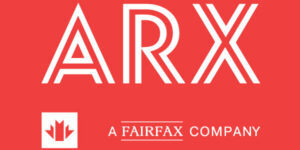
On November 25, the Board of the insurance company ARKS (Kyiv) has decided to terminate the activity of Dnipro branch of Kyiv regional directorate. As the company reported in the information system of the NCSSM, the decision was made in connection with optimization of the company’s activities.
It is also specified that the separate subdivision is different from branches and representative offices, has no registration in the Unified state register.
ARKS is a part of the international insurance holding Fairfax Financial Holdings Ltd.
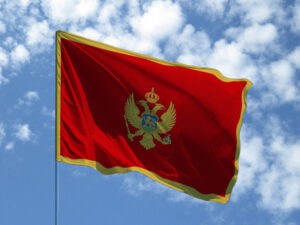
According to Serbian Economist, Montenegro will cancel visa-free entry for Russian citizens and introduce a visa regime by the end of the third quarter of 2026 as part of the harmonization of visa policy with the rules of the European Union.
“In accordance with the commitments undertaken by Montenegro on its path to full membership in the European Union, the country must fully harmonize its visa policy with the EU policy by the end of the third quarter of 2026. This includes, among other things, the introduction of a visa regime for Russian citizens,” the commentary reads.
Russian citizens can now enter Montenegro without a visa and stay in the country for up to 30 days under a bilateral agreement.
According to the national statistical service Monstat, in 2023 Montenegro was visited by about 247 thousand tourists from Russia, which provided 24% of all overnight stays of foreign guests; in 2024 their share amounted to 18.3% with a total flow of 2.6 million tourists. According to the Ministry of Internal Affairs of Montenegro, about 20 thousand citizens of the Russian Federation with temporary or permanent residence permits are officially registered in the country.
Thus, the tightening of the visa regime will potentially affect annually hundreds of thousands of tourist trips and tens of thousands of Russians living or regularly vacationing in Montenegro. Experts expect that part of this flow will be reoriented to other visa-free or easier destinations for Russians – primarily Turkey, Egypt, UAE, Serbia and a number of Asian countries.
https://t.me/relocationrs/1822
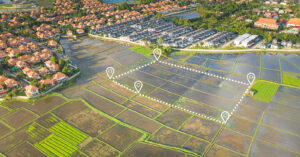
Local budgets received UAH 37.7 billion from land tax payments in January-October 2025, which is 15.3% or UAH 5 billion more than in the same period last year, according to Lesya Karnaukh, acting head of the State Tax Service (STS), on Facebook.
According to her, taxpayers in Dnipropetrovsk and Kyiv provided more than a third of all land tax revenues for the 10 months of 2025, with local budgets in Dnipropetrovsk receiving UAH 6.7 billion and the capital receiving UAH 5.3 billion.
In addition, Odessa (UAH 3.3 billion) and Lviv (UAH 2.6 billion) regions are among the leaders in land tax payments.
“Land tax is one of the most stable sources of local budget revenues. These funds are used specifically for communities and the implementation of infrastructure and social projects. I would like to thank all taxpayers who conscientiously fulfill their obligations. Every contribution works for the development of communities and the strength of the country,” Karnaukh concluded.